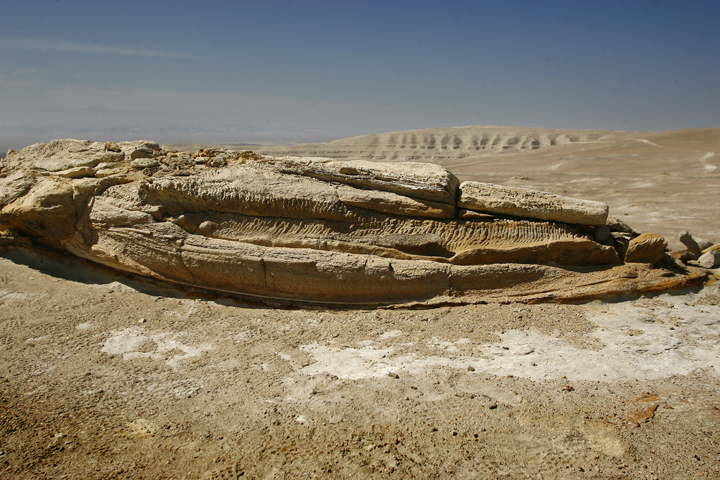SANTIAGO, Chile – Scientists investigating a graveyard of marine mammal fossils near Chile’s northern coast say toxins generated by algae blooms most likely poisoned the animals millions of years ago.

The study by a team of Chilean and Smithsonian Institution scientists was published Wednesday in the journal Proceedings of the Royal Society B.

Get breaking National news
The experts travelled to Chile’s Atacama region in 2011 to unearth one of the world’s best-preserved graveyards of prehistoric whales.
Other unusual creatures found at the “Whale Hill” site include an extinct aquatic sloth and a walrus-like toothed whale.
Scientists say the “orientation and condition” of the skeletons shows that the animals “died at sea, prior to burial on a tidal flat.”
The remains were first found by highway construction workers in 2010.







Comments